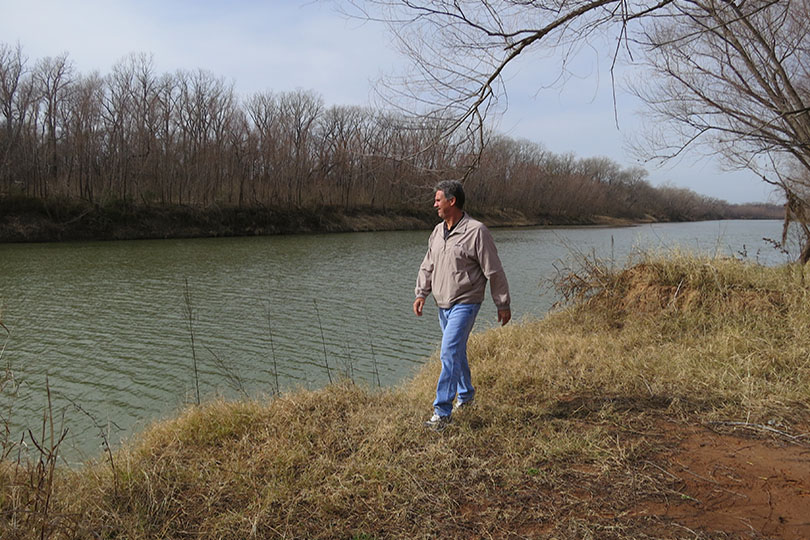By Julie Tomascik
Associate Editor
Water battles in drought-prone Texas have rules to follow. And the Texas Supreme Court’s recent denial of a state petition for review leaves in place a lower court ruling that favors farmers, ranchers and other longstanding water rights holders.
The dispute began in fall 2012 when Dow Chemical asserted its senior water rights and asked the Texas Commission on Environmental Quality (TCEQ) to make a priority call on Brazos River water, which also supplies farmers, ranchers, cities and other industries along its 900-mile stretch.
The state environmental agency responded by curtailing water from junior water rights holders. But they took it a step further and exempted cities and power generators from curtailment, overstepping their bounds during a scorching drought.
More than 700 farmers and ranchers were left without surface water for irrigation, while the cities and power generators continued to pump water. TCEQ attempted to justify the exemption based upon public health, safety and welfare concerns.
That’s when Texas Farm Bureau (TFB) stepped in.
TFB took legal action, suing TCEQ on behalf of the farmers along the Brazos River.
“This was a case that evaluated a time-tested water rights system in the state,” TFB Government Affairs Director Regan Beck said.
That system—first in time, first in right—is the simple idea that has guided appropriations of Texas surface water.
When the Texas agency strayed from state water law, the battle began brewing along the Brazos.
“The TCEQ’s rules went beyond their purview,” Beck said. “There wasn’t anything in the statutes that said they could make this exemption. It effectively did away with the priority system and farmers and ranchers lost their rights in times when there’s a priority call.”
Once an irrigator has perfected their permit, it becomes a vested property right. Beck noted changing the rules in the priority doctrine would have taken away that right.
The lawsuit, which included TFB and nine other plaintiffs, was first heard in District Court in Travis County. TFB won the lawsuit in 2013 when the court agreed TCEQ didn’t have the power to make that decision.
The ruling was appealed to the 13th Court of Appeals in Corpus Christi.
The court ruled TCEQ doesn’t have general police power to exempt junior preferred water rights from suspension based on public health, safety and welfare concerns.
The decision was once again appealed to the Texas Supreme Court, where agriculture and private property rights were handed victory.
“The trial and appeals courts reached the same conclusion and the Texas Supreme Court declined to hear the case, ultimately reaching the same decision,” Beck said. “The outcome, which favored agriculture and private property rights, will have a major role in the future water issues in our drought-prone state.”

